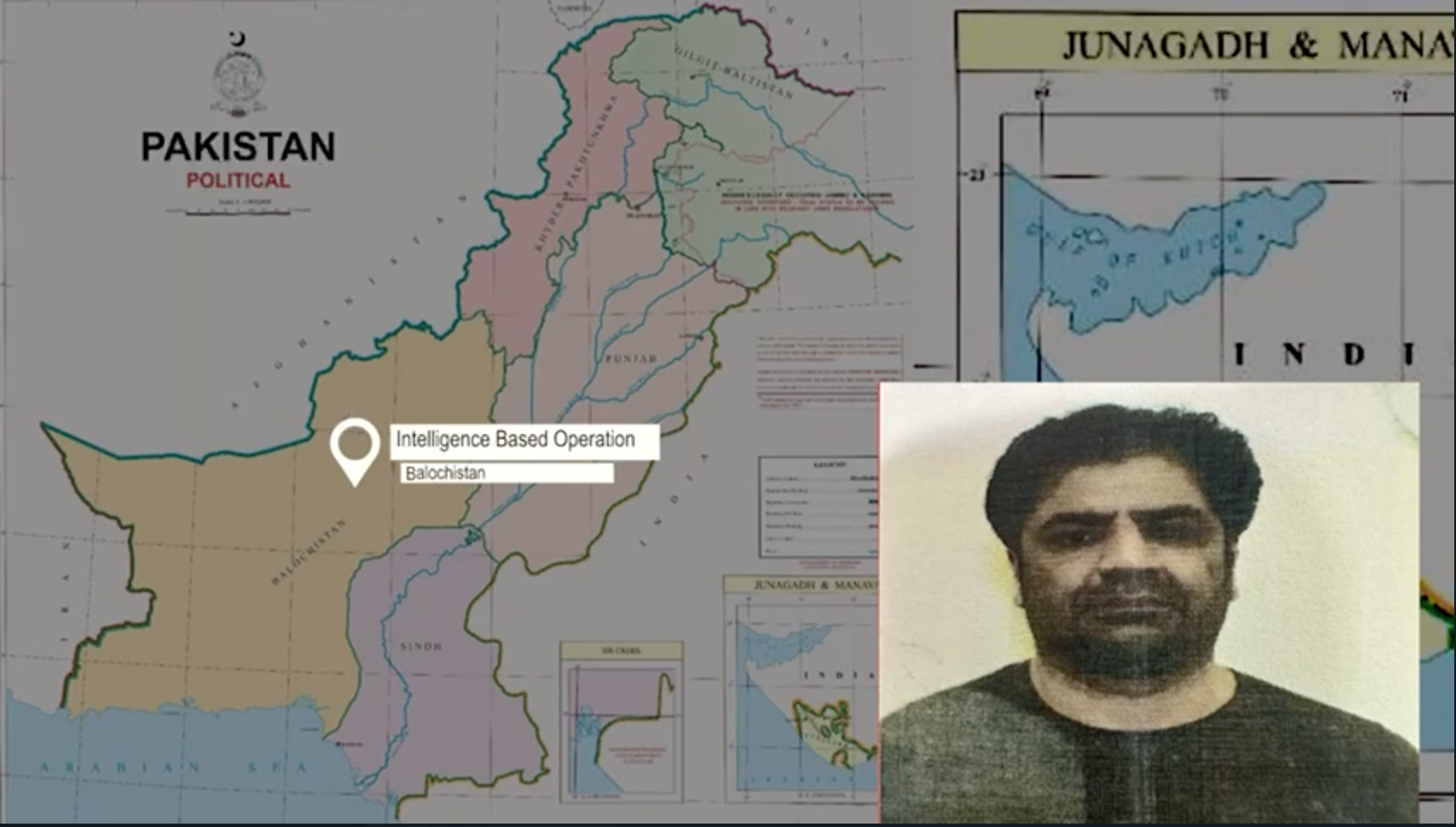QUETTA: The Pakistan army said on Friday it had arrested the founder of the Baloch National Army (BNA), one of the most prominent separatist groups operating against the Pakistani state in the southwestern Balochistan province.
The region, which borders Afghanistan to the north, Iran to the west and has a long coastline on the Arabian Sea, has seen a decades-long insurgency by separatists whose stated aim is independence from Pakistan.
Balochistan has Pakistan's largest natural gas field and is believed to have many more undiscovered reserves. It is also rich in precious metals including gold, the production of which has grown over recent years. Separatists say they are fighting what they see as the unfair exploitation of the province’s gas and mineral wealth by Pakistan’s richer, more powerful provinces.

A screen grab taken from a video released by the Pakistan military's media wing after the arrest of Gulzar Imam. (Photo courtesy: Screen grab/ISPR
Pakistani security forces have been the main focus of separatist attacks, but in recent years they have also targeted Chinese interests, given Beijing's increasing economic footprint in the region.
“In a high profile and a successful Intelligence Operation, Lead Intelligence Agency successfully apprehended a High Value Target (HVT) Gulzar Imam alias Shambay,” the army said in a statement.
“He has been a hardcore militant as well as founder and leader of the banned outfit Baloch National Army.”
The BNA, the military said, was an amalgamation of two other separatist groups, the Baloch Republican Army (BRA) and United Baloch Army (UBA). Imam had also been “instrumental” in the formation of the Baloch Raji Aajoi Sangar (BRAS), an umbrella group of Baloch insurgent groups, and served as its operational head.
The army added that it was investigating Imam’s links with hostile intelligence agencies, in a reference to Indian and Afghan spy outfits.
“The arrest of Gulzar Imam Shambay is a serious blow to BNA as well as other militant groups, which have been attempting to destabilize the hard-earned peace in Balochistan,” the army said.
Balochistan home minister Meer Zia Langove called Imam’s arrest a “major strike” against militant groups operating in Balochistan:
“The government and security forces will continue action until we sweep-out the last terrorist from this soil,” he told Arab News.
But analysts warned against premature optimism over Imam's arrest.
Shahzad Zulfiqar, a journalist who has covered politics and militancy in Balochistan for the last two decades, said Imam was a “fervent commander” of the Baloch Republican Army (BRA) who later formed his own faction and then joined BRAS in 2018.
“It [Imam's arrest] is a success for the government and security forces because they can get information about their [separatists] activities, other leaders and group members and also bust their domestic and international linkages,” Zulfiqar told Arab News.
“But he was not alone, there were still many active commanders fighting on the ground.”
Abdul Basit a researcher at the S. Rajaratnam School of International Studies in Singapore, said Imam’s arrest was “technically a victory” for the Pakistani government since he was among the top three Baloch separatist commanders leading the fight against the state.
However, he warned that the complicated Baloch insurgency was not dependent on any single commander.
“The center of gravity of the Baloch insurgency lies in the ethnic grievances,” Basit said, adding that the movement’s strength did not come from leaders like Imam but the radical, increasingly aware and educated young people in Balochistan who were frustrated with a lack of attention to the province's development and wanted the state to protect and give them their due rights.












